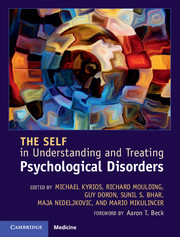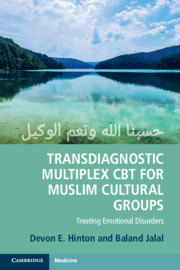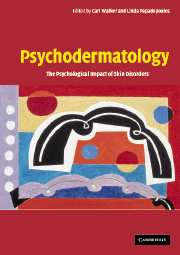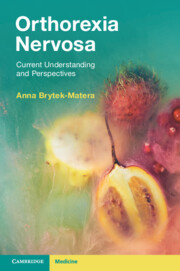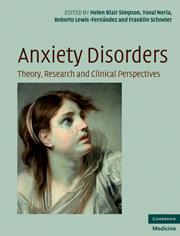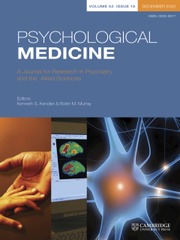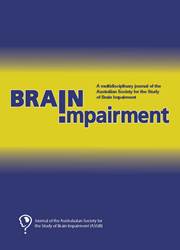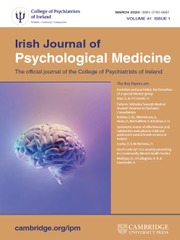The Self in Understanding and Treating Psychological Disorders
This must-have reference is a unique exploration of how the individual notion of 'self' and related constructs, such as early schemas and attachment styles, impact on psychopathology, psychotherapy processes and treatment outcomes for psychological disorders across DSM-5, such as depression, bipolar and schizophrenia spectrum disorders, anxiety and trauma, eating disorders, obsessive-compulsive and related disorders, autism, personality disorders, gender identity disorder, dementia and somatic problems such as chronic fatigue syndrome. It discusses the role of the concept of self in a wide range of existing theoretical and treatment frameworks, and relates these to real-life clinical issues and treatment implications. Emphasizing the importance of integrating an awareness of self constructs into evidence-based conceptual models, it offers alternative practical intervention techniques, suggesting a new way forward in advancing our understanding of psychological disorders and their treatment.
- Provides an up-to-date overview of existing literature on the concept of self from a social psychological, clinical, personality, cognitive, philosophical, neuroscientific and experimental perspective, enhancing the reader's understanding of the concept and factors influencing the development of the self
- Organized by chapters addressing specific psychological and cognitive disorders, making it an easy-to-use reference whilst also providing a comprehensive overview of the role of self in different disorders
- Covers all major approaches that have a widespread practitioner base and that have existing or emerging evidence bases, including psychological and cognitive disorders representing major groups within diagnostic taxonomies such as the DSM-5
Reviews & endorsements
'The Self in Understanding and Treating Psychological Disorders is a treasure trove of information for both researchers and clinical practitioners. It offers plenty of useful insights as well as fascinating findings from research. The different chapters complement each other effectively. The human self is an important foundation for any quest to understand human nature and human behavior, and these chapters vividly and clearly describe what happens to the self in the context of psychopathology. The book is an informative and thought-provoking read, useful for anyone wanting an introduction or update to this vast and fast-moving field.' Roy F. Baumeister, Florida State University, and author of Willpower: Rediscovering the Greatest Human Strength
Product details
May 2016Hardback
9781107079144
255 pages
252 × 195 × 16 mm
0.71kg
3 b/w illus. 11 tables
Available
Table of Contents
- Foreword Aaron T. Beck
- List of contributors
- Section 1. Introduction and Concepts:
- 1. The self in psychological disorders: an introduction Michael Kyrios
- 2. The self-concept: theory and research Sunil S. Bhar and Michael Kyrios
- 3. Adult attachment and self-related processes Mario Mikulincer and Guy Doron
- Section 2. The Self in Treatment Frameworks:
- 4. Working with the future: a psychodynamic-integrative approach to treatment Golan Shahar and Moran Schiller
- 5. Finding the self in a cognitive behavioural perspective David A. Clark
- 6. The self in acceptance and commitment therapy Robert D. Zettle
- 7. The self in schema therapy Eshkol Rafaeli, Offer Maurer, Gal Lazarus and Nathan C. Thoma
- Section 3. The Self in Specific Psychological Disorders:
- 8. The self in depression Patrick Luyten and Peter Fonagy
- 9. The self in bipolar disorder Nuwan D. Leitan
- 10. The self in social anxiety Bree Gregory, Lorna Peters and Ronald M. Rapee
- 11. The self in post-traumatic stress disorder Mardi J. Horowitz and Monica A. Sicilia
- 12. Self processes in obsessive compulsive disorder Claire Ahern and Michael Kyrios
- 13. The self in the obsessive compulsive-related disorders: hoarding disorder, body dysmorphic disorder, and trichotillomania Richard Moulding, Serafino G. Mancuso, Imogen Rehm and Maja Nedeljkovic
- 14. Self-regulation in disordered gambling: a comparison with alcohol and substance use disorders Simone N. Rodda, Kate Hall, Petra K. Staiger and Nicki A. Dowling
- 15. The self in autism Istvan Molnar-Szakacs and Lucina Q. Uddin
- 16. Basic self disturbance in the schizophrenia spectrum: a review and future directions Barnaby Nelson, Louis A. Sass and Josef Parnas
- 17. Painful incoherence: the self in borderline personality disorder Giovanni Liotti and Benedetto Farina
- 18. The self in obsessive compulsive personality disorder Maja Nedeljkovic, Richard Moulding, Michael Kyrios and Stephanie Mathews
- 19. The self in chronic fatigue syndrome Stefan Kempke, Eline Coppens, Patrick Luyten and Boudewijn Van Houdenhove
- 20. The self in eating disorders Christopher Basten and Stephen Touyz
- 21. The self in dementia Lisa S. Caddell
- 22. The self in gender dysphoria: a developmental perspective Kenneth J. Zucker and Doug P. VanderLaan
- Section 4. Conclusions and Future Directions:
- 23. Future directions in examining the self in psychological disorders Michael Kyrios, Richard Moulding, Sunil S. Bhar, Guy Doron, Maja Nedeljkovic and Mario Mikulincer
- Index.

